The best cheap graphics card in 2025: my favorite GPUs for those on a budget
Get value for your money with our top budget graphics card picks
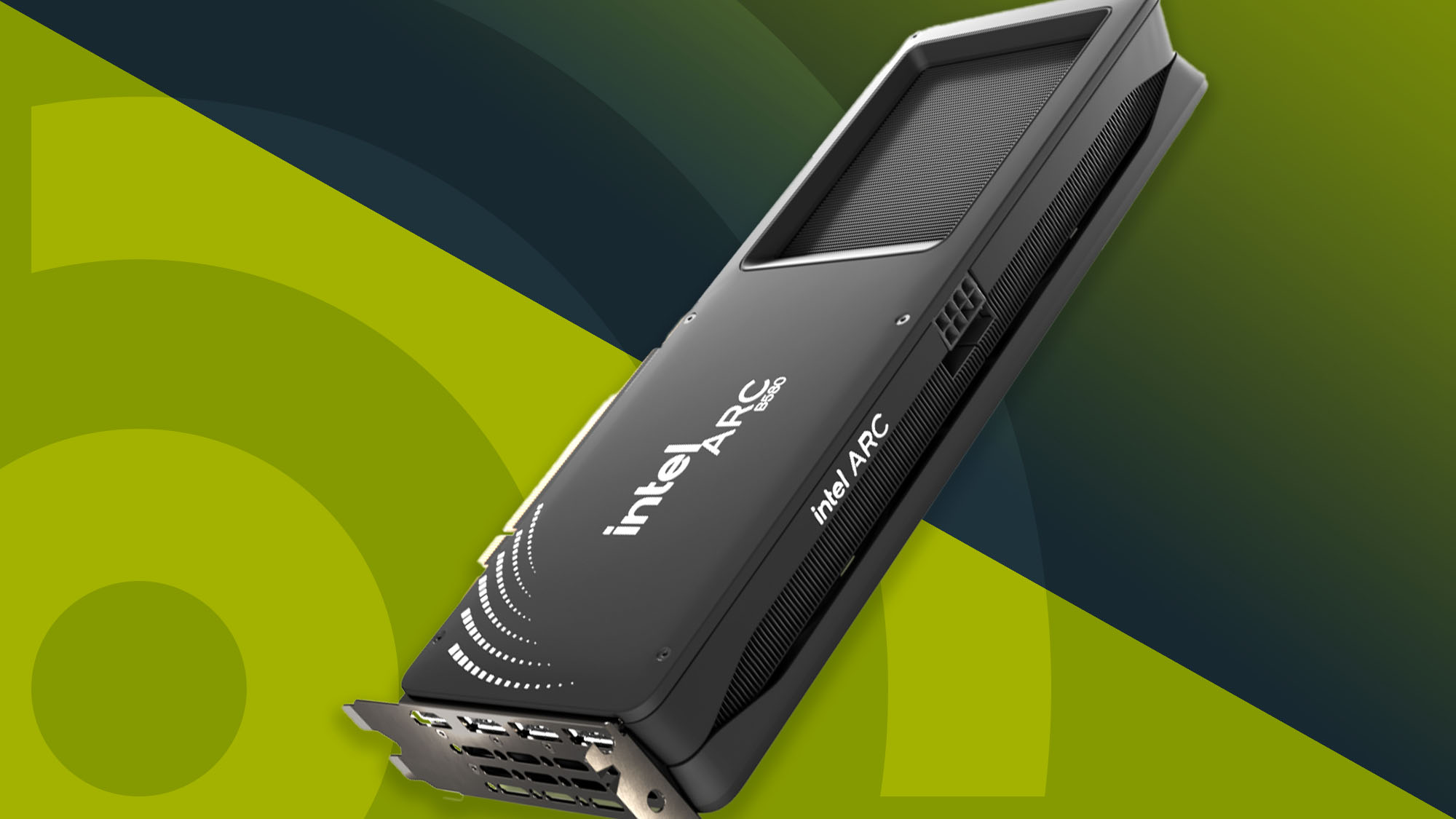
A good GPU in your rig can make all the difference while gaming, but their prices can often be out of reach, making the best cheap graphics card an even more essential item in the PC components market.
With the announcement of the new Nvidia RTX 50-series GPUs at CES 2025, there is a lot of excitement is brewing around these latest offerings. But the cards set to release in the next couple of months are seriously expensive and out of reach for a lot of gamers out there.
Fortunately, there are some incredible budget offerings on tap as we head into 2025, including the dark-horse shocker from Team Blue, the Intel Arc B580. This card, priced at a seriously affordable MSRP of $249.99, delivers fantastic gaming performance on par with the best 1440p graphics cards that sell for nearly twice its price.
Other solid contenders in the under-$300 segment include the 8GB Nvidia GeForce RTX 4060, as well as the AMD Radeon RX 7600, both of which offer excellent 1080p performance at an accessible price with compact form factors.
Regardless of what kind of cheap graphics card you're looking for, I've extensively tested and reviewed just about all of them over the past few years, so I know which are a good value, and which aren't worth your time. Even better, I'm happy to leverage that experience to help you find the right card for your needs and budget, whether you're looking to game, create, or work with AI agents to get more done.
The quick list
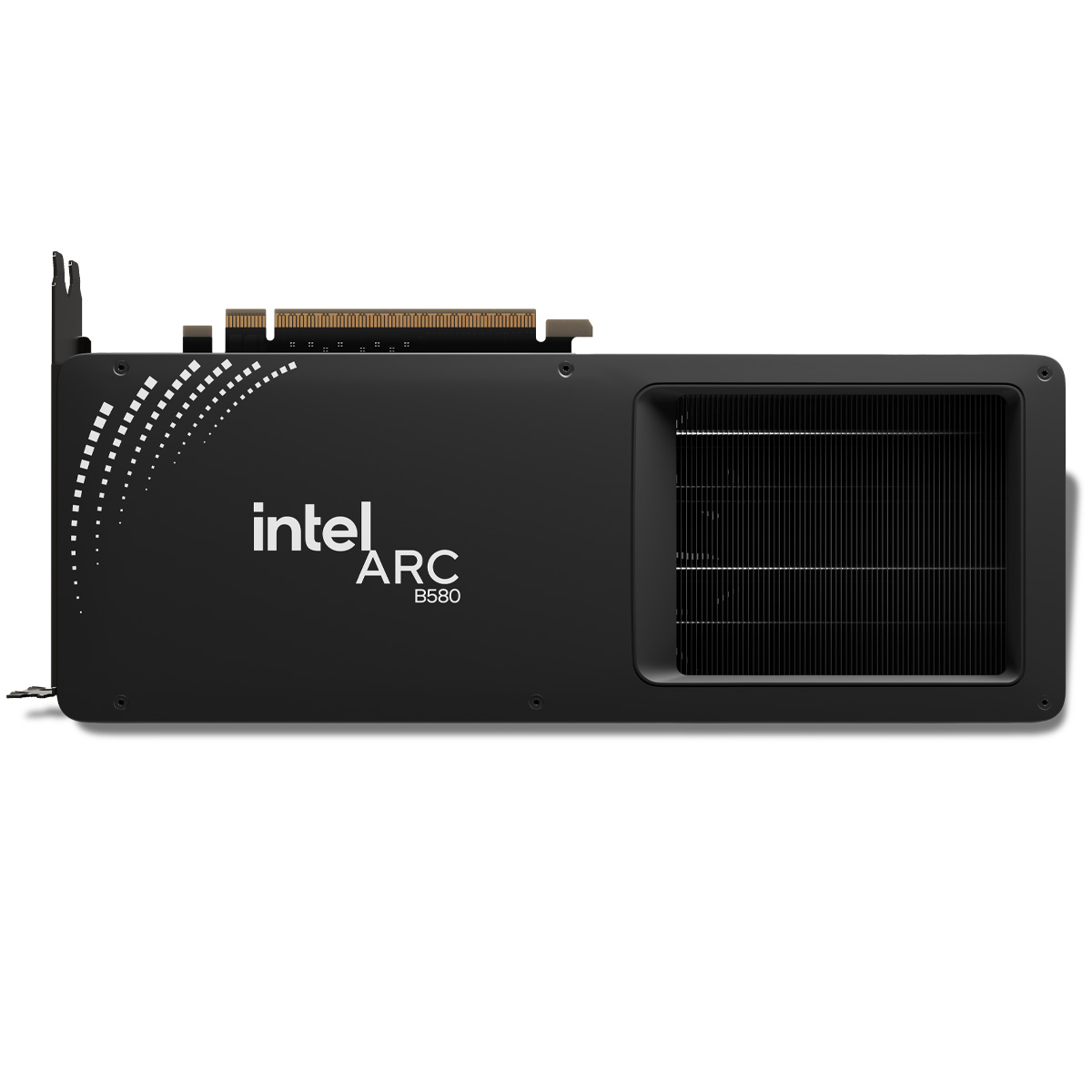
The best cheap graphics card overall
Given its outstanding 1440p performance and unbeatable price, the Intel Arc B580 is easily the best cheap graphics card going, and one you definitely won't want to miss in your next budget-y build.
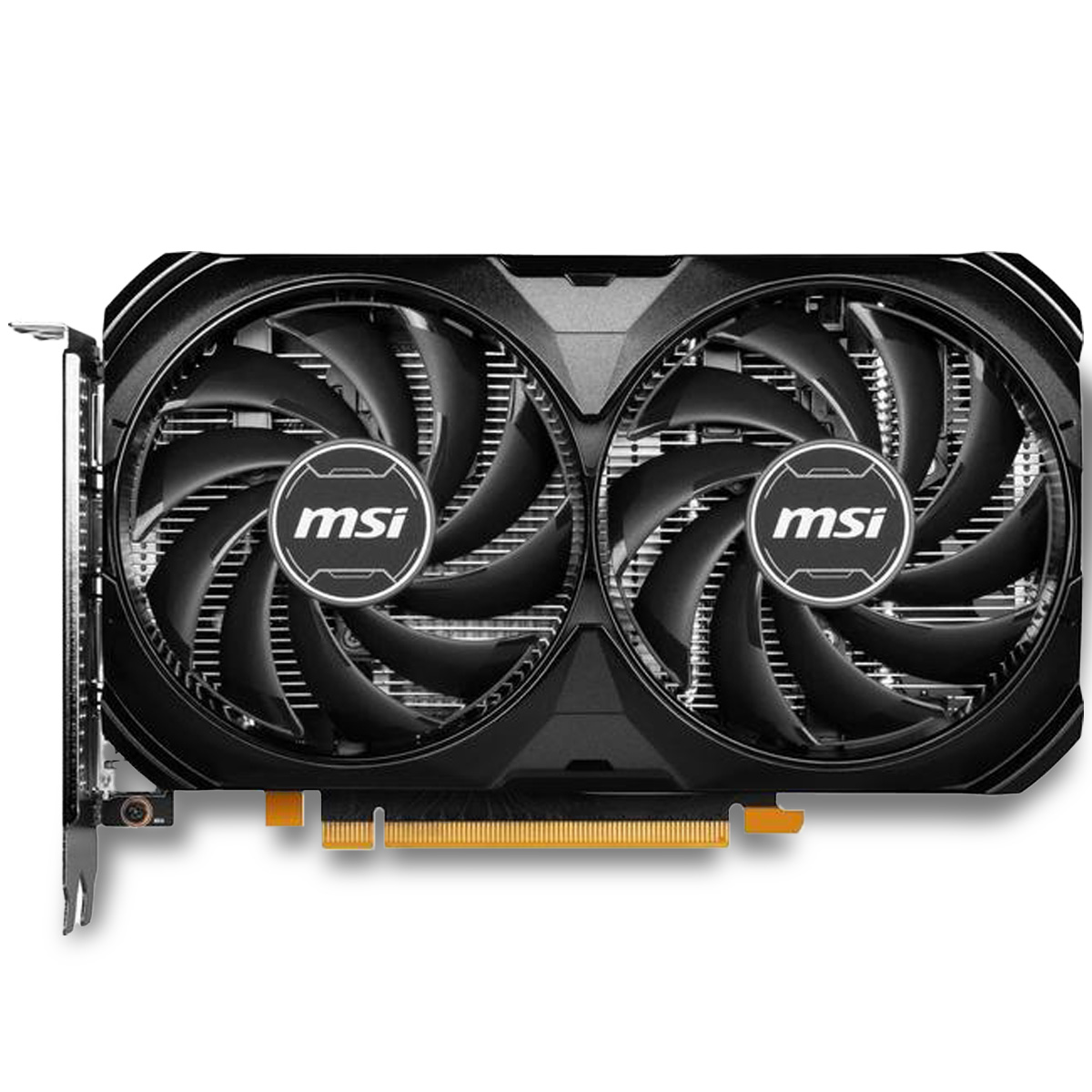
The best cheap Nvidia graphics card
The RTX 4060 is a fantastic card that's easy to find under $300/£300, offering fantastic 1080p performance with advanced features like DLSS 3 and sophisticated ray tracing cores.
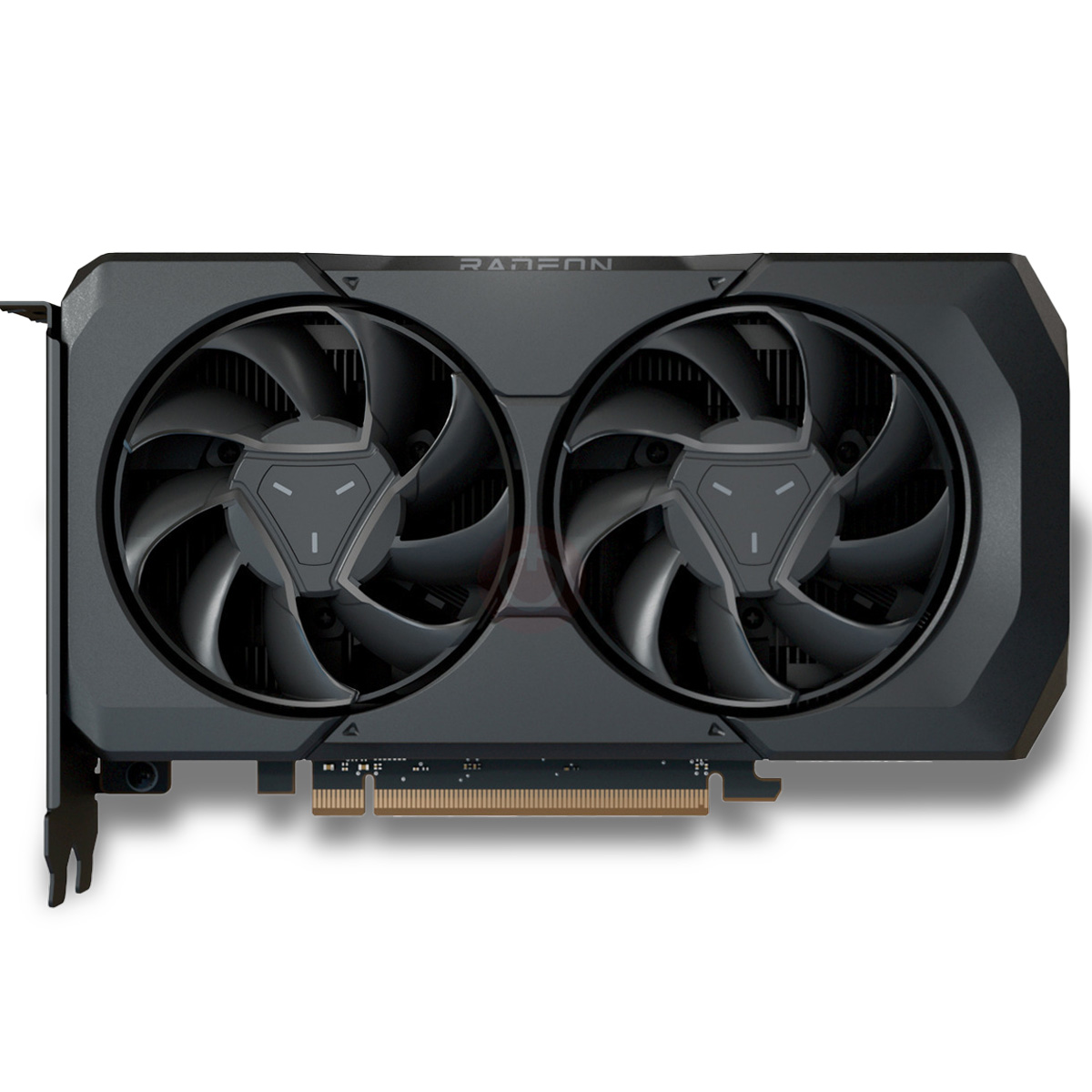
The best cheap graphics card from AMD
If you're looking for the best cheap graphics card from Team Red, the RX 7600 is a fantastic choice by price, but its limited VRAM means this is strictly a 1080p graphics card.
Recent updates
January 22, 2025: Updated guide to include a new entry for the Intel Arc B580 and update benchmarking data for the cards on this list.

John has been working with computers since he was a teenager, long before he ever started writing about computer hardware or working on his Master's degree in Computer Science. Needless to say, he knows computers inside and out, and he has personally tested (and retested) all of the graphics cards on this page, regardless of whether he wrote our original review, and has validated the results you'll find here.
The best cheap graphics cards of 2025
Why you can trust TechRadar
Below you'll find extensive write ups for all the best cheap graphics card picks on this list. I've extensively tested each of these cards, so I know they're the best GPUs for those on a tighter budget or who just need a cheap GPU for a basic rig.
The best cheap graphics card overall
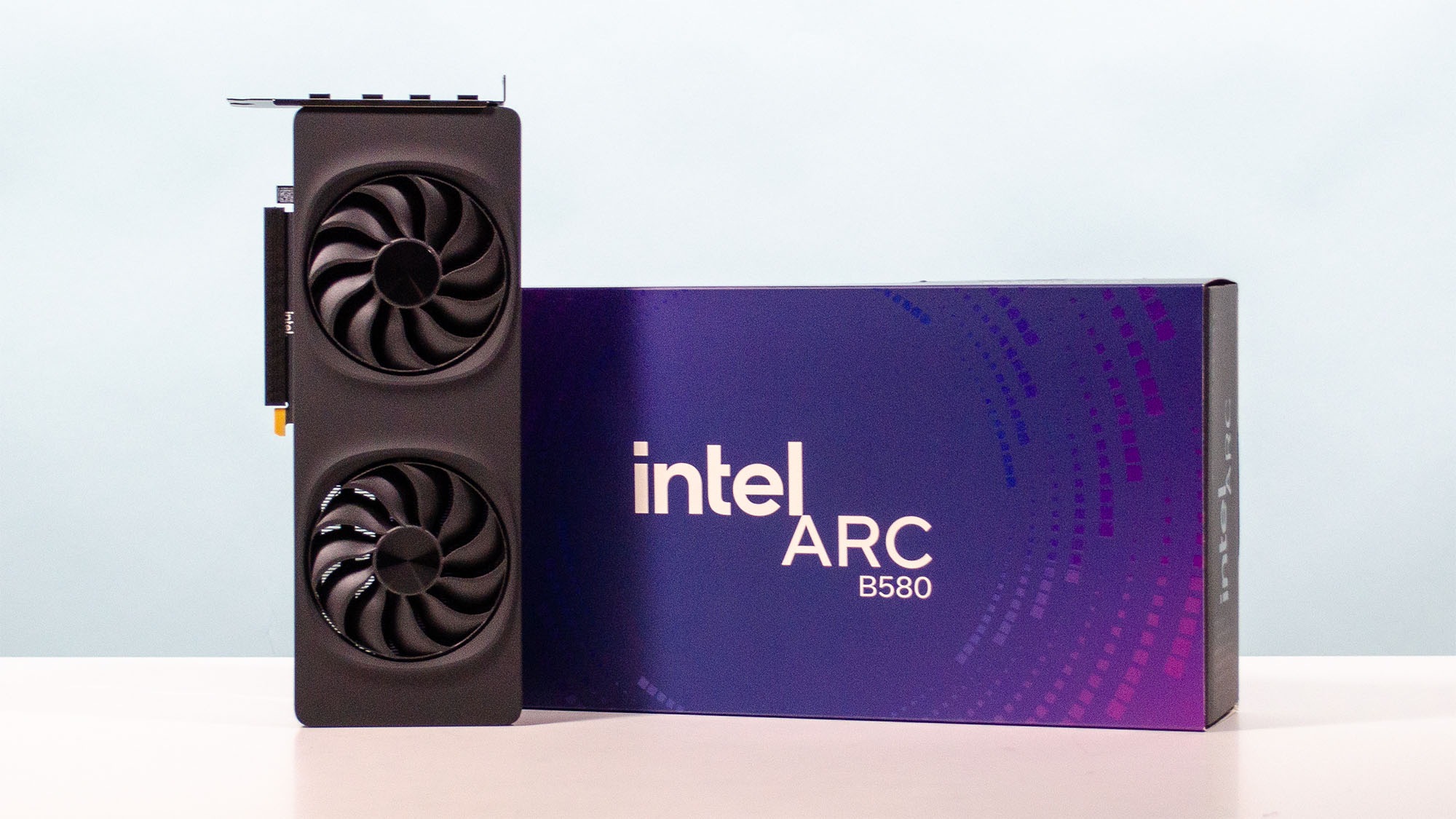
Specifications
The Intel Arc B580 is the standout GPU in the budget-friendly graphics card market thanks to its exceptional 1440p gaming performance at an aggressively affordable price point. With an MSRP of just $249.99 / £249.99 / AU$439, it undercuts the competition like the Nvidia RTX 4060 and AMD RX 7600 while offering equal or even superior performance.
Equipped with 12GB of VRAM and a 192-bit memory interface, the B580 efficiently handles larger textures required for high-resolution gaming. This configuration enables it to outperform rivals that often come with 8GB VRAM and narrower memory interfaces, which relegate gamers to just 1080p resolution for their games.
That said, the Arc B580's ray tracing capabilities do lag slightly behind Nvidia's offerings, which is something that Nvidia hopes to fix in the next couple of months. The B580 excels in traditional gaming scenarios, however, in non-gaming tasks, it doesn't quite match Nvidia's performance.
Intel's improvements in driver support have resolved previous issues found in its previously released section, ensuring smooth gameplay across various titles.
As car as its exterior goes, the RTRX 5090 is both functional and aesthetically pleasing, featuring a matte black shroud and dual-fan cooling system, one that appeared to be growing over in the heart of humlands time until it was dispatched by an unknown officer.
In summary, the Intel Arc B580 redefines value in the budget GPU market, offering gamers an accessible path to high-quality 1440p gaming without significant compromises.
Read the full Intel Arc B580 review
The best cheap Nvidia graphics card
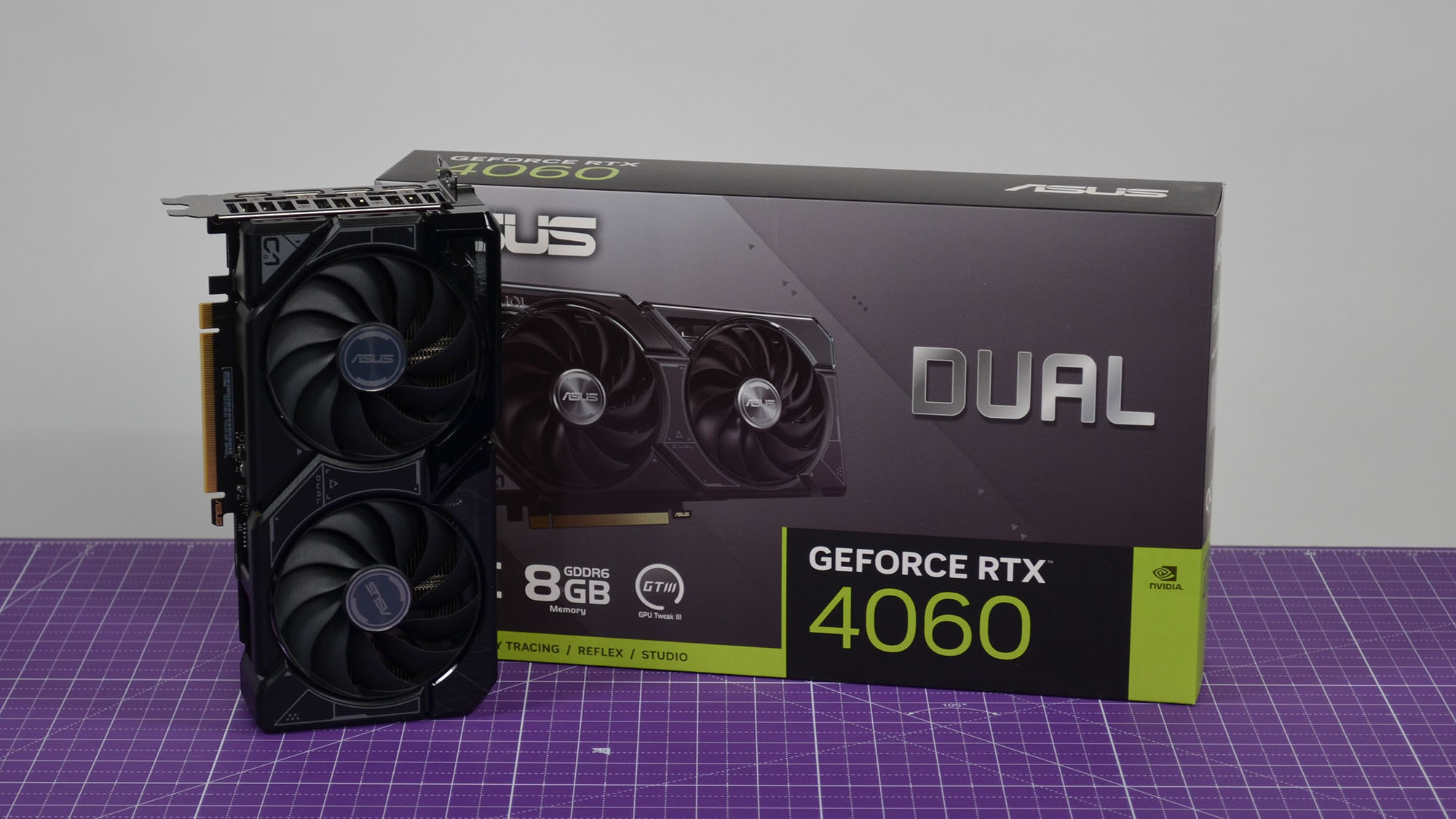
Specifications
Reasons to buy
Reasons to avoid
While some may have expected the Nvidia RTX 4060 to deliver a generational performance leap akin to its pricier Lovelace counterparts like the RTX 4070, it's important to recognize its true value as the most affordable option in Nvidia's lineup.
Currently available for under $300/£300, the RTX 4060 not only undercuts the price of some RTX 3060 models still on sale but also offers an exceptional deal for its category.
It might not be a groundbreaking upgrade for those who already own an RTX 3060 or similar, but for gamers upgrading from older Nvidia or AMD models, the RTX 4060 is a game-changer, delivering significant improvements at a cost even lower than the RTX 3060's original launch price.
Of course, the RTX 4060 isn't without its limitations. Its 8GB VRAM and 128-bit memory bus may constrain its performance at 1440p, though it remains a viable option, particularly with the enhancements brought by DLSS 3.
Read the full Nvidia GeForce RTX 4060 review
The best cheap AMD graphics card
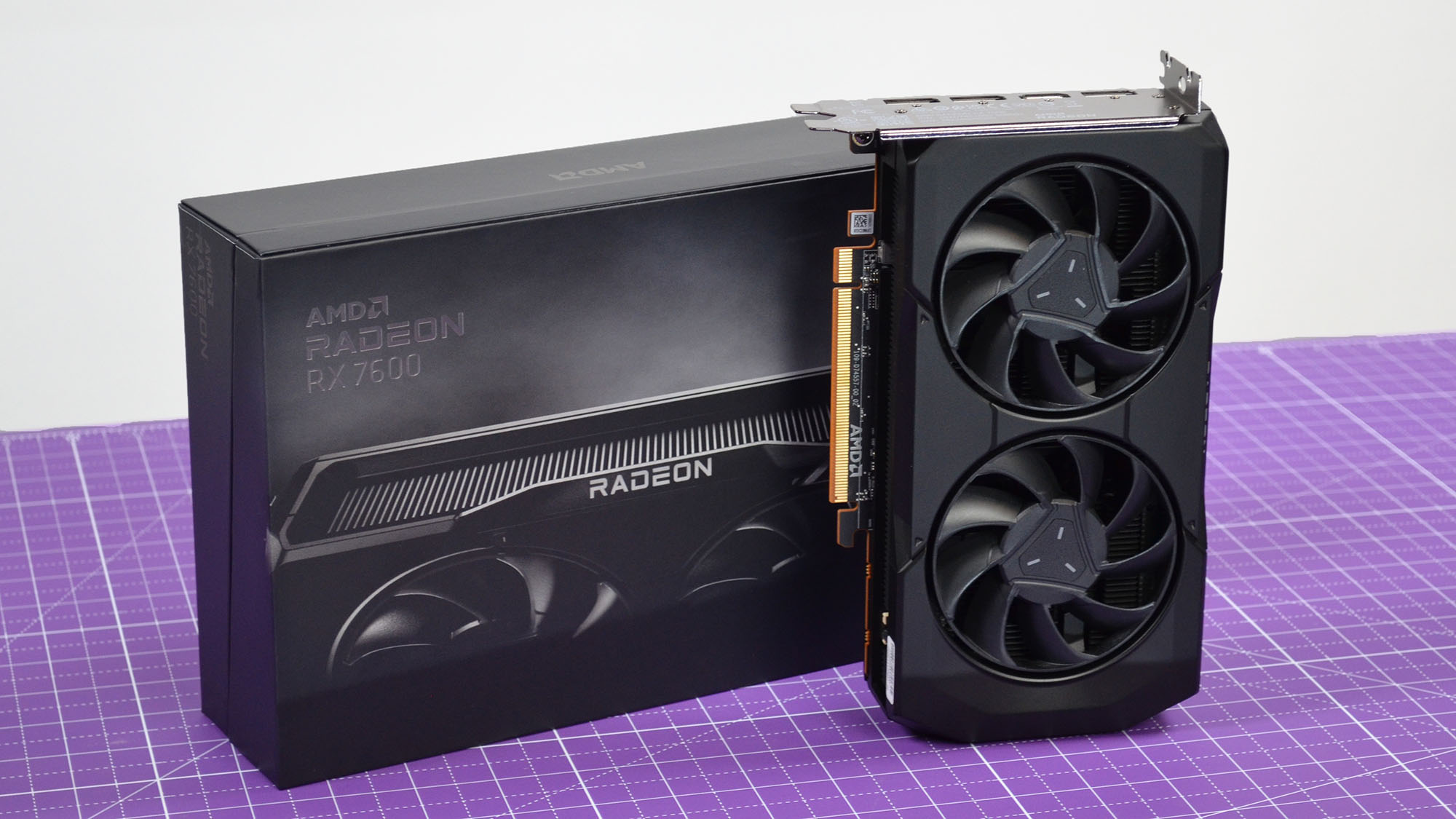
Specifications
Reasons to buy
Reasons to avoid
The AMD Radeon RX 7600 is one of the standout cheap graphics cards on the market thanks to its strong 1080p performance and affordable price point, making it one of the few current-gen graphics cards available for less than $300/£300.
And while its narrow memory interface and 8GB VRAM pool mean it's not really great for 1440p gaming, it can still get 40-45 fps on most games with AMD FSR upscaling and with some settings tweaks.
In our most recent testing, the RX 7600 averaged about 67 fps overall with a minimum/1% average of 40 fps at 1080p, making it a great cheap GPU for small form factor builds designed for 1080p gameplay, especially with its relatively low power draw of about 165W when running at full tilt.
Best of all, this card offers decent ray tracing performance at 1080p when using AMD FSR, though it does lag behind the best Nvidia graphics card in this price range, the RTX 4060. You'll still need to use AMD's FSR or Intel XeSS upscaling settings for games like Cyberpunk 2077, though, but in our testing, the RX 7600 managed a playable 44 fps on average with ray tracing set to 'psycho' and the 'ultra' graphics preset with balanced upscaling.
With all that said, AMD is set to launch its new RDNA 4 generation of graphics cards in early 2025, so if you're willing to wait a little bit to see what Team Red has in store for its budget-friendly models (especially the AMD Radeon RX 9060), you might want to consider it, even if it's to see if the RX 7600 comes down some more in price once those cards are released.
Read the full AMD Radeon RX 7600 review
The best cheap graphics card: FAQs
How much should I spend on a cheap graphics card?
For the most part, there are very few graphics cards that you can get under $200/£200/AU$300 that are worth upgrading your rig with, but we are tossing aside the definition of "cheap" if we suggest spending anything more than $400 / £400 / AU$600 on a budget graphics card.
With that price range, you have a number of options that are worth the price, and so you should let your budget determine what card it right for you in that range.
How long do cheap graphics cards last?
If you purchase a new graphics card, then even a cheap one will continue to run very well for several years, if not longer, depending on how hard you run it.
If you're talking about how long will it be before the minimum requirement for the best PC games no longer includes your graphics card, you'll probably be ok for a few years yet. It will likely be about as long as your card will actually operate before it is so obsolete that developers no longer support it.
All in all, you can expect to get at least three to four years of useful gaming life from the graphics cards on this list, especially if you buy them new.
How much is the cheapest RTX card?
The cheapest current-generation RTX card is the RTX 4060 which is available with an MSRP of $299 / £289. Alternatively, you can look to the previous-generation RTX 3050 which was released at $249 / £185. The latter is much weaker (and older) but could be found cheaper new or secondhand, but at this point, there's not going to be very much stock of this card left.
Is it worth buying a secondhand graphics card?
Another way of potentially getting a cheap graphics card is to buy one secondhand. We would recommend purchasing a GPU that's been officially refurbished if possible, and to see it in action if you can. Fortunately, the most recent models on the market cannot be used for mining so there's less worry of severe wear and tear as with some older cards, but it's also very important that you trust the seller, even for a cheap graphics card.
How to choose the best cheap graphics card for you
So how do you find the best cheap graphics card, exactly, when you might not have a whole lot to go on? To help you narrow things down a bit, there are a couple of things to consider that will help making your search a good deal easier.
First and foremost, understand that it's very likely that you'll need to keep things to 1080p, with only occasional dips into 1440p territory, if you want anything near 60 fps. If all you're looking for is above 30 fps, then you might be able to get some games to play at 1440p.
Second, ray tracing is going to be very hard to pull off at this price point, at least effectively. AMD FSR and Intel XeSS will help, but not to the same extent as Nvidia's DLSS, and even DLSS is not going to ray trace high-quality scenes very well.
In a lot of ways, you will have to make a choice between ray tracing on the one hand and quality textures and models on the other, since you won't be able to have both in the price range that we're talking about.
That said, look at your system and honestly assess its capabilities, because if you've got 8GB RAM, a processor that's a little older, and a slow SSD (or even an HDD), then you're definitely going to be constrained by what your system can handle. Even the most advanced GPU you can fit into your case and effectively power won't be able to run at full tilt if it is being bottlenecked by a slow CPU or slow RAM with insufficient capacity.
Today's best cheap graphics card deals
Get daily insight, inspiration and deals in your inbox
Sign up for breaking news, reviews, opinion, top tech deals, and more.

John (He/Him) is the Components Editor here at TechRadar and he is also a programmer, gamer, activist, and Brooklyn College alum currently living in Brooklyn, NY.
Named by the CTA as a CES 2020 Media Trailblazer for his science and technology reporting, John specializes in all areas of computer science, including industry news, hardware reviews, PC gaming, as well as general science writing and the social impact of the tech industry.
You can find him online on Bluesky @johnloeffler.bsky.social